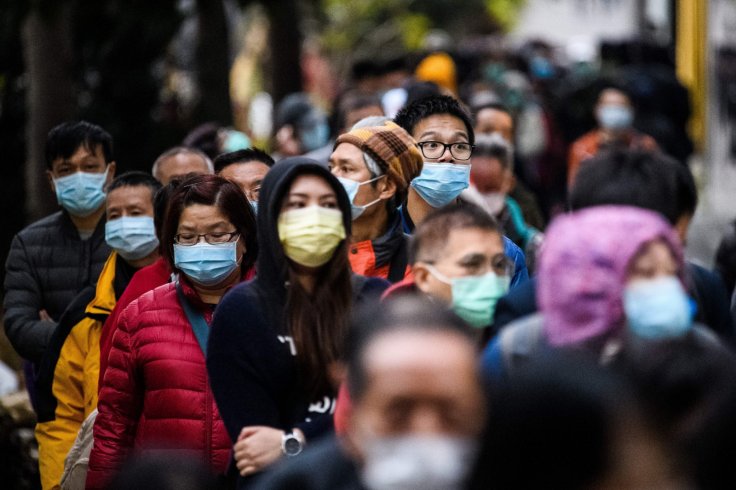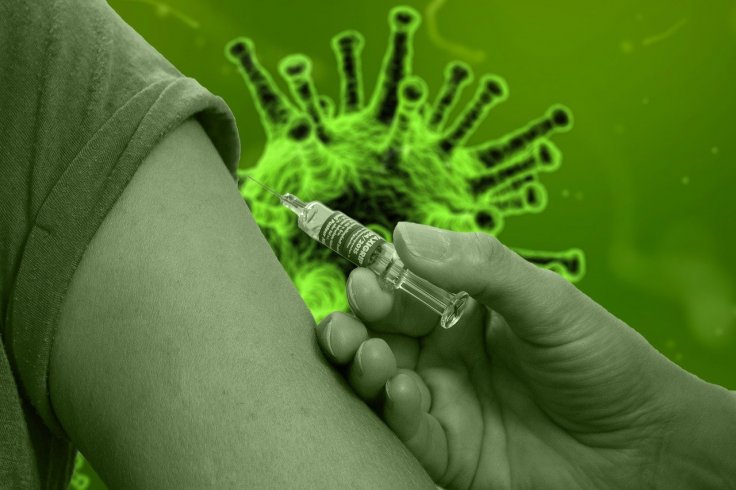Along with the criticism related to China's early Coronavirus response, the Chinese Communist Party has been facing questions about the made-in-China vaccines. But the country is now hitting back by encouraging theories regarding the Western vaccines and the origin of the novel Coronavirus that some experts say could cause harm.
Despite the concern about the Chinese vaccine efficacy and trial data, the state media, as well as Chinese officials are now spreading doubts about the Western vaccines and pushing some claims regarding the origin of the virus. Both the issues are in the spotlight because of the ongoing rollout of vaccines in several countries and the recent arrival of a team from the World Health Organization (WHO) in China's Wuhan to investigate the source of the SARS-CoV-2.

Shifting the Blame
A social media hashtag "American's Ft. Detrick" was started by the Communist Youth League, which is the youth division of CCP. The hashtag was viewed at least 1.4 billion times last week after the Foreign Ministry spokesperson Hua Chunying called for a WHO investigation of the biological weapons lab in Maryland.
Fang Shimin, who is a popular Chinese science writer, now based in the US, told AP: "Its purpose is to shift the blame from mishandling by (the) Chinese government in the pandemic's early days to conspiracy by the US. The tactic is quite successful because of widespread anti-American sentiment in China."
According to Yuan Zeng, who is an expert on Chinese media at the University of Leeds in the UK, the CCP-led government's theories spread so widely that some of her well-educated friends started to cast doubt on what they used to know about the Coronavirus. She said that such conspiracy theories and doubts can pose a risk to public health as the governments are trying to dispel unease about vaccines and that is "super, super dangerous".
After 23 elderly Pfizer-BioNTech vaccine receivers died in Norway, the Chinese state media found the opportunity and called for an investigation. An anchor at the CGTN and Global Times newspaper accused the Western media of ignoring the news.
But the healthcare experts said that the deaths were not related to the Pfizer-BioNTech vaccine. They also noted that such cases can occur during mass vaccination campaigns. However, a WHO panel has concluded that the vaccine did not cause the deaths in Norway.
The state media raised doubts on Western vaccines at a time when China's Sinovac jab, initially claimed as 78 percent effective, was found to be only 50.4 percent effective against the COVID-19 after including mildly symptomatic cases.
But soon after the new figures came out, researchers at the Australian Strategic Policy Institute noticed an increase in Chinese media disinformation about vaccines. Several online articles and blogs have explored questions regarding the effectiveness of the Pfizer-BioNTech vaccine. Even this month an op-ed published in the British Medical Journal raised questions about the clinical trial data.
Fang told AP that it is happening because China is trying to promote its own vaccines while letting people remain in doubt about the Pfizer-BioNTech mRNA vaccine. Unlike Chinese vaccines which include the traditional approach, the technology used to develop the Pfizer-BioNTech vaccine is new. The director of the Chinese Centers for Disease Control, Gao Fu, said in December 2020 that the negative effects of mRNA vaccine cannot be ruled out and "there are safety concerns".

WHO's Investigation Is a Risk
Jacob Wallis, a senior analyst at the Australian Strategic Policy Institute, said that China sees the arrival of WHO's team to investigate the Coronavirus origin as a political risk because it focuses on China's response. The visit of WHO's team was approved by President Xi Jinping's government after months of diplomatic wrangling that led director-general Tedros Adhanom Ghebreyesus to criticize Chinese authorities.
Wallis said that the CCP wants to distract people in the country and all around the world by "pre-emptively distorting" the narrative on where responsibility lies for the emergence of the novel Coronavirus.
However, while calling for WHO's investigation involving US military lab, the Foreign Ministry spokeswoman Chunying said: "If America respects the truth, then please open up Ft. Detrick and make public more information about the 200 or more bio-labs outside of the US, and please allow the WHO expert group to go to the US to investigate the origins."
Her comments became viral on social media, especially on Sina Weibo. But such claims not only fueling more conspiracy theories about the virus origin but also causing a trust issue around the vaccine development, as well as their efficacy.









